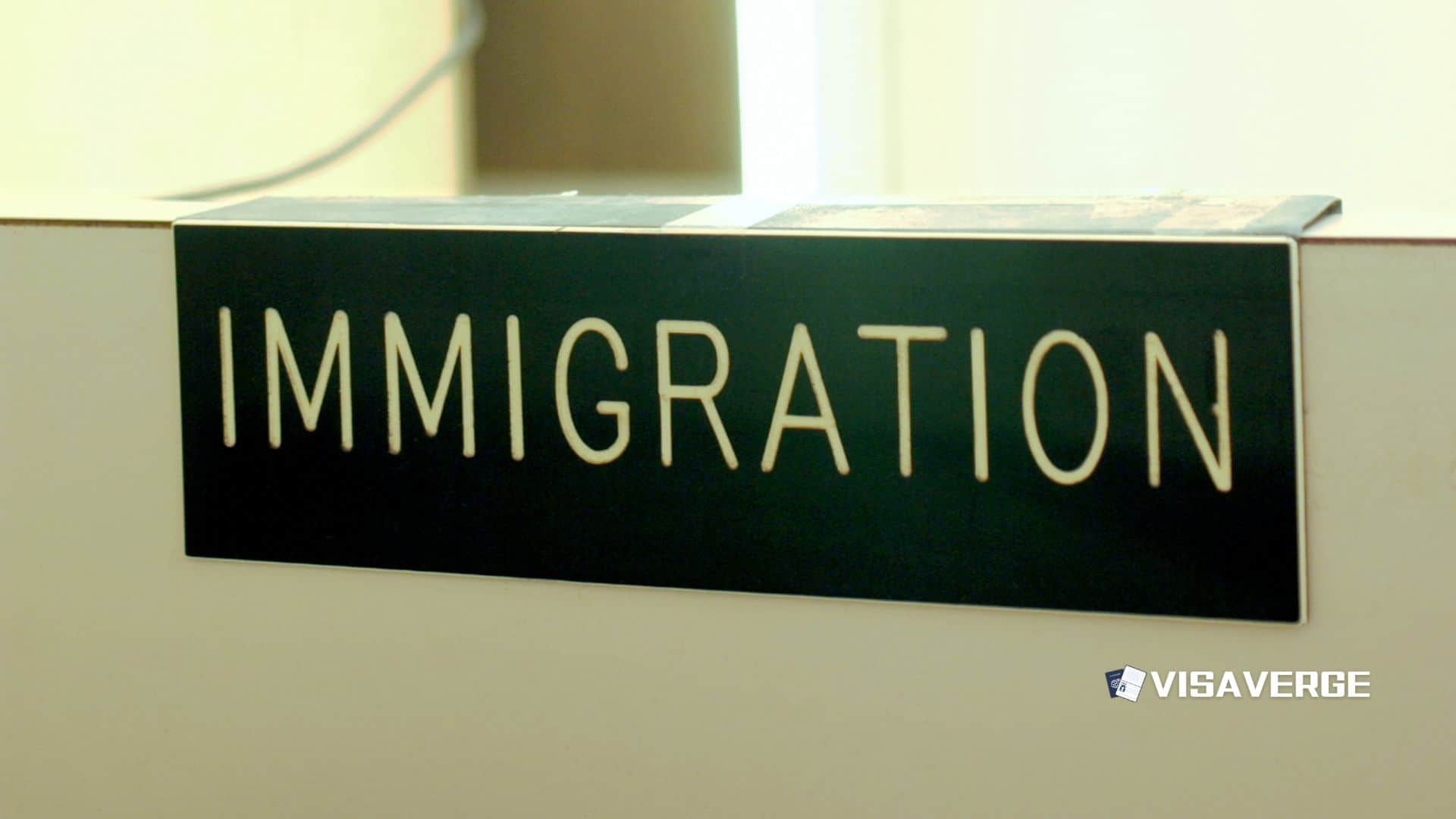Key Takeaways
• Skill level for Skilled Worker visa rises from RQF 3 to RQF 6, impacting about 180 occupations.
• Settlement period for permanent residency proposed to double from 5 to 10 years for foreign workers.
• Employers must show stronger investment in local hiring and training to sponsor overseas workers.
Executive Summary
On May 12, 2025, the UK government published its Immigration White Paper, “Restoring Control over the Immigration System.” This policy paper introduces big changes planned for the United Kingdom’s immigration system, especially concerning the Skilled Worker visa. The proposals aim to lower migration numbers, make border checks stronger, and shift focus to higher-skill workers. While these ideas are not yet law, they signal the future direction and carry real weight for businesses across many sectors. Key changes include stricter skill and pay requirements, new rules for settlement and citizenship, and new demands for how employers hire and train both local and international staff. Businesses will need to review their hiring, training, and compliance efforts as these changes roll out. This brief explores the main points of the Immigration White Paper, analyzes its likely effects, and explains what steps businesses should consider next.

Introduction
The Immigration White Paper published by the UK government in 2025 sets out a blueprint for changing how foreign workers come and work in the United Kingdom 🇬🇧. It focuses especially on the Skilled Worker visa, the main route for international talent, and introduces reforms meant to drive the UK toward a higher skill economy. Because these ideas are only proposals, they do not yet have the force of law. Even so, their direction is clear: fewer lower-skill roles for foreign workers, higher skill and salary requirements, and more pressure on businesses to hire and train workers already living in the UK. These moves could reshape recruitment and workforce planning for many companies, big and small.
Background
Following the United Kingdom’s exit from the European Union, the government introduced a points-based immigration system in 2020. That system had reduced the skill threshold for sponsorship to RQF 3 (the level of A-levels, or school-leaving exams). This opened more lower-skill jobs to overseas applicants. According to reports, this led to a big rise in the number of Skilled Worker visas given for jobs below RQF 6, jumping from just 10% before 2020 to about 60% after lowering the threshold.
Since then, there has been public demand for stronger border management and for priority to be given to local workers when filling job vacancies. In this context, the Immigration White Paper aims to “restore control” over the system. It lays out plans to raise skill and salary standards, reduce reliance on migrant workers, and encourage employers to develop British talent.
Analysis
- Increase in Skill Level for Sponsorship
Under the proposals, the required skill level to sponsor a worker will be raised from RQF 3 (A-level) back to RQF 6 (graduate degree level). This change means about 180 jobs that were previously eligible would be banned from sponsorship. The government’s decision represents a reversal from 2020 rules and a return to a higher bar for foreign worker entry.
Analysis from VisaVerge.com suggests that sectors like hospitality, retail, logistics, and social care are likely to be most affected. These sectors have many jobs currently at or below RQF 3, and many businesses rely heavily on overseas workers for these roles.
While employers may welcome efforts to invest more in local training, such a sudden change could leave some gaps in the workforce, at least while domestic training and hiring catch up to demand.
- Higher Salary Thresholds
The Immigration White Paper also signals an increase in the minimum pay foreign workers must earn to qualify for sponsorship. The exact new salary figures have not been published, but the removal of the so-called “immigration salary list” means there will be fewer exceptions for shortage occupations.
Removing salary discounts for shortage jobs will make it more expensive for employers to sponsor overseas talent. For example, a care home that could previously use discounted requirements to bring in staff may now need to pay full market rates, increasing overall wage costs.
- Protecting Existing Skilled Worker Visa Holders
The White Paper makes clear that current Skilled Worker visa holders in jobs below RQF 6 will not be caught by the new rules. They can renew their visas, switch jobs, and take extra work under the same rules they have now. This provides certainty and protects those already living and working legally in the United Kingdom 🇬🇧.
- Settlement and Citizenship Reforms
A standout proposal is to lengthen the qualifying period for permanent residency from five years to ten. This means foreign workers must wait twice as long before applying for settlement. However, the government is also floating the idea of a points-based system, where high contributions to the UK economy or society could cut this period down—though details are still being discussed.
This could make the United Kingdom 🇬🇧 less attractive to workers who want stability and a path to citizenship, especially compared with other countries with shorter waits.
- New Employer Requirements
The White Paper creates a clear link between hiring from overseas and investing in domestic workers. Businesses in sectors with high levels of overseas recruitment will have to create workforce strategies to show how they are boosting local hiring and training.
A new Labour Market Evidence Group will gather real-time data on job shortages and worker reliance on foreign labor. They will recommend how to improve British training and reduce gaps.
- Sector-Specific Impacts
a) Care Sector
The care sector sees some of the most sweeping changes. The overseas social care visa route will close fully, with a grace period to 2028 for staff already in the UK 🇬🇧 to switch visas or extend stays. Many care providers rely on overseas staff, so this could cause shortages unless there’s a big jump in local recruitment and training.
b) Technology and Innovation
For the fast-growing tech sector, the UK government promises a review of the Innovator Founder visa, hoping to make it more open for university students who want to set up companies in the United Kingdom 🇬🇧. The Expansion Worker visa will be updated, so companies can bring ten, not just five, people to start a UK business.
c) Higher Education
International students will find the rules on post-study work narrowing. Graduate visa holders will only have 18 months to stay and work after completing their degrees, down from two years. This may affect the appeal of British universities and could make it harder for companies to keep foreign graduates in the UK workforce.
Policy Options
The Immigration White Paper points to a few different ways forward, each with its own pros and cons:
- Stick to the Proposed Higher Bar for Skills and Salary
This path will likely cut the number of migrants coming for lower-skill jobs, but risks staff shortages where local workers can’t fill all the roles. Costs for businesses may go up as they compete in the same pool for talent and pay higher wages.
- Mix Higher Standards with Support for Sectors in Need
It may be possible to keep most requirements high but allow special exceptions for sectors like health or tech that face real shortages. This would help fill urgent roles but could keep loopholes open longer than the government wants.
- Link Immigration More Directly with Training
Making employers prove strong investment in local training as a condition for more visas could grow British skills faster, but will require major changes to how companies operate and how quickly the education system can provide new talent.
Recommendations
Given the scope of the proposals, businesses should consider early action:
- Apply for sponsorship for jobs below RQF 6 as soon as possible before the new rules are put in place.
- Review and adapt workforce plans to rely less on overseas hires for jobs that may soon be ineligible.
- Plan for higher wage costs in future budgets, especially if sponsoring any skilled role.
- Invest heavily in training and growing local talent so you can show this when asked under new rules.
- Follow government updates closely, as implementation could come quickly for some rules.
Case Study: Care Sector
The overseas care worker route has, for some time, filled gaps left by a shortage of UK candidates. The closure of this path—except for a phase-out by 2028—means providers will have to move fast to recruit and train locally or risk not having enough staff.
Case Study: Tech Start-ups
A small tech firm can soon bring ten people instead of five on an Expansion Worker visa, making it easier to set up in the United Kingdom 🇬🇧. At the same time, attracting young founders out of UK universities may get easier if Innovator Founder visas become more open.
Challenges and Counterarguments
Some argue these changes could make the UK seem less open and flexible, pushing talent to countries with more friendly policies. Others say that local skills and economy will grow more slowly than hoped, causing labor shortages and higher costs for everyday services. There is also a risk that sudden changes hit small businesses hardest, as they lack resources to keep up with strict new rules.
Some businesses, especially those in care and hospitality, say that local labor is hard to find and train. They say a gradual phase-in and support for training are needed to avoid disruption.
Visual Support
A pie chart could show the current share of Skilled Worker visas at different RQF levels, highlighting how many jobs may soon be ineligible.
A simple timeline can map key proposed changes and estimate when they might become law—some with just weeks’ notice.
For direct, current information or changes as they happen, you can visit the UK government’s official immigration page.
Conclusion
The Immigration White Paper marks the biggest shift in immigration for businesses since Brexit. Its main ideas—higher skill and salary thresholds, longer waits for settlement, pressure on employers to invest in local talent, and sector-by-sector changes—will deeply affect how companies find and keep workers. Those who act early, update their planning, and invest in training will be in the best position to handle the changes ahead. While some effects are still unknown because parts of the plan need new consultations, it’s wise to get ready now.
References
[1] Penningtons Law: Immigration White Paper 2025 – Restoring Control
[2] Ashurst: Immigration Changes – White Paper 2025
[3] Morgan Lewis: UK Government Publishes Immigration White Paper
[4] UK Government: Immigration White Paper to Reduce Migration and Strengthen Border
[5] TechUK: How Will the Immigration White Paper Affect the UK’s Role as a Tech Talent Hub?
For more detailed updates and expert commentary on UK immigration policy, readers can visit VisaVerge.com.
Learn Today
Immigration White Paper → A government policy document outlining proposed reforms to the UK’s immigration system, guiding future law and practice.
Skilled Worker visa → Main UK visa route allowing foreign workers in qualified occupations to live and work in the United Kingdom.
RQF Level → Regulated Qualifications Framework level; measures the skill or qualification required for certain jobs in the UK.
Settlement → Obtaining permanent residency status in the UK, also known as Indefinite Leave to Remain.
Sponsorship → The process by which employers apply for permission to hire foreign workers under specific UK immigration routes.
This Article in a Nutshell
The UK’s 2025 Immigration White Paper proposes higher skill and salary thresholds for the Skilled Worker visa. Key changes include stricter requirements, longer residency waits, and new employer obligations. Businesses should act now, adapt hiring, and strengthen local training to navigate these evolving rules and ensure workforce resilience.
— By VisaVerge.com
Read more:
• Trump Administration Targets Ukrainians With Cash to Leave
• Archer Aviation enters UK defense market with dual-use Midnight eVTOL
• UK visa rules prevent Ellison Tsang from trial with West Ham
• British Airways leads UK airlines in lost luggage search concerns
• Asylum seeker loses right to stay in UK after marrying a woman













